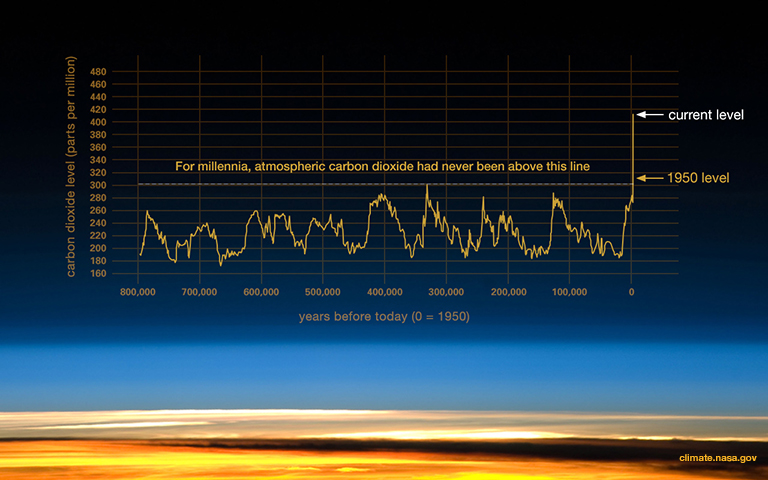I think the level of carbon dioxide in the air is high enough to reduce the intelligence of humans. This has nothing to do with climate change.
Except that both mean we should reduce CO₂.
I never heard of that, surprisingly, but deducted that from simple known facts. I hope I'm missing something.
Maybe my idea is just wrong? It's simple enough to explain here:
Elevated CO₂ levels in office air reduce the cognitive ability of office workers, that is well established.
That is measurable by experiment. Complaints about drowsiness start at about 1000 ppm CO₂ in air.
Reduction in cognitive ability does happen with drowsiness, almost by definition.
The level of CO₂ is currently a significant fraction of 1000 ppm, about 409 ppm as of November 2019.
The CO₂ level in a typical western indoor working environment raises by multiple 100 ppm over the day, exhaled by people breathing in the working environment.
With an increasing base level, an increasing level in workplace air reaches a fixed threshold sooner, because CO₂ levels are additive.
The base level does increase. Therefore a level of CO₂ that reduce the cognitive ability of humans is reached earlier in a working day.
If the base level is higher, base level plus the additional CO₂ in office air reach a level that reduces cognitive ability sooner during a work day.
This happens globally in many workplaces.
That is true for any values of base concentration, threshold concentration and maximum of increase during a day that are of the same order of magnitude. This estimation is optimistic, because it assumes that the effect has a sudden onset at a level that causes obvious symptoms.
To summarize the central points: Some CO₂ concentration exists that has negative effects. An offset in base air concentration results in an offset in the workplace concentration. That means the detrimental concentration is reached more often. For this to be true, the exact numbers are not even relevant.
Ok, what's wrong with that deduction?
I really hope there is something wrong.
If this is a reason to care about the level of carbon dioxide in common air, it is completely independent of climate change, an alternative motivation to do exactly the same thing. That seems very relevant to me.

